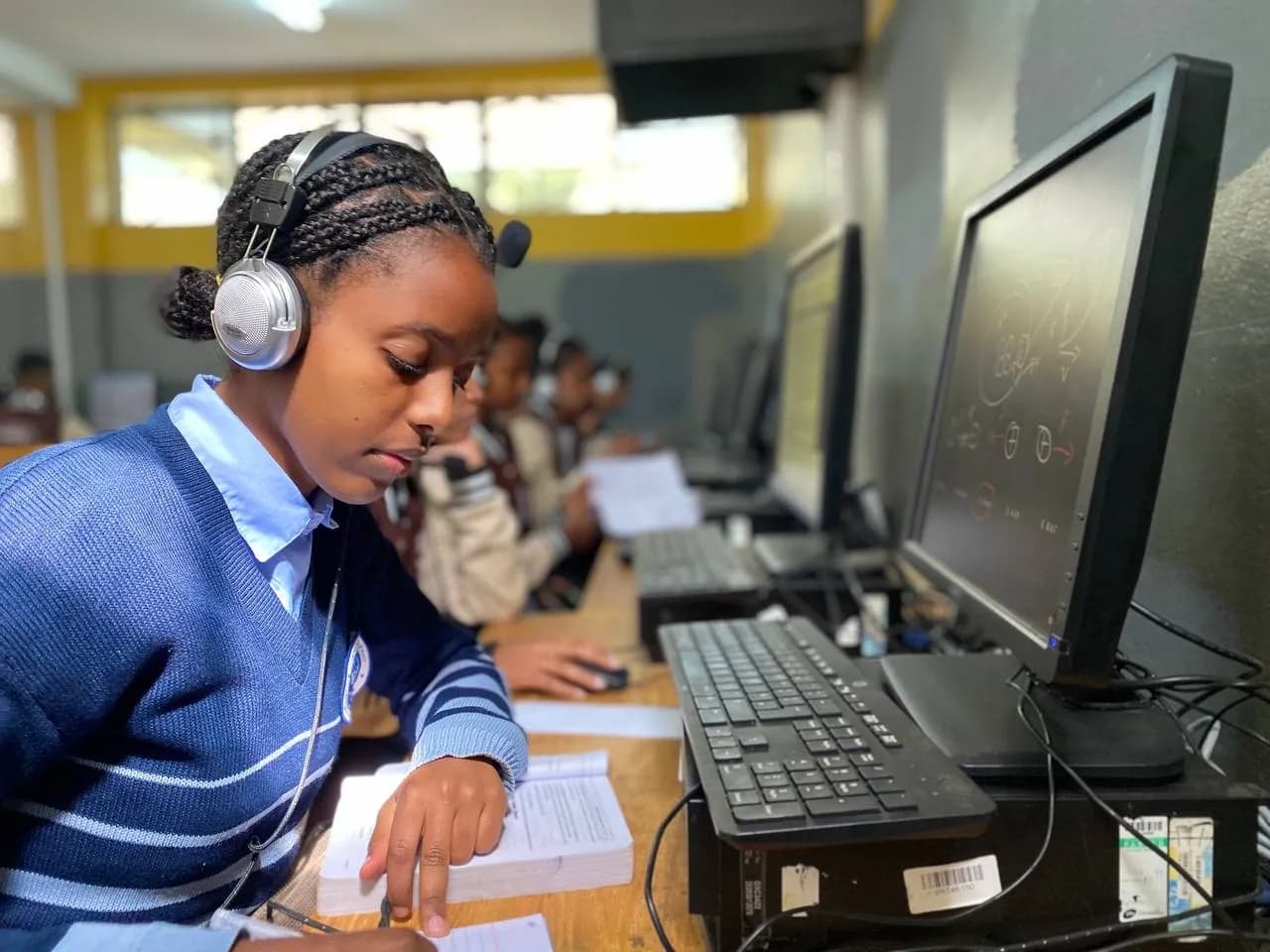Progress for 0 ad
Progress for 1 ad
Progress for 2 ad
Progress for 3 ad

Partner Content
Addis Ababa, Ethiopia

As Ethiopia attempts to integrate educational technology (EdTech) tools into its academic system, it faces a pressing question: how can the country design tailored, progressive policies and ensure their effective implementation? The answers may determine whether Ethiopia can bridge its educational gaps or see them widen further in the digital age.
The August edition of EdTech Mondays Ethiopia, a monthly show produced by the Mastercard Foundation in partnership with Shega Media and Technology, brought together key stakeholders to examine the challenges of policymaking and implementation in incorporating digital tools into education.
The discussion featured Alemu Tesfaye, who works on teacher and educational leader development at the Ministry of Education, Ruth Kebede, CEO of EDit Educational Services and an education advocate, and Bereket Gezahgen, General Manager and Head of School at Kelem International School. Moderated by journalist Rediet Meshesha, the episode centered on the challenges and opportunities of policymaking for EdTech adoption, with a focus on how regulations can balance innovation while addressing systemic bottlenecks in the sector.
Alemu began by noting that Ethiopia’s education system has only recently started incorporating digital technology, and the process remains highly uneven across regions. He pointed to modest progress, such as the introduction of information technology as a subject in primary schools.
“These were among the notable policy updates,” Alemu said, “even though execution has lagged.”
He argued that one of the main barriers to implementation is the prevailing attitude among one of the main stakeholders. For Alemu, one of the primary barriers to implementing EdTech policy lies in attitudes. Too many teachers and education leaders still lack confidence in the value of technology in classrooms, he says.
“Negative attitudes and poor understanding abound among educators regarding the benefits of educational technology, even with basic tools like mobile phones,” Alemu explained. He also highlighted the lack of infrastructure, limited access to devices, and a shortage of digital content aligned with the curriculum. He urged policymakers to consider these constraints when formulating strategies.
Ruth emphasized the need for dynamism in policy formulation to keep pace with rapid technological change. She underscored the urgency of evolving regulations on personal data, especially for minors, while acknowledging recent progress.
“EdTech-specific personal data regulations could prove highly pivotal,” she said.
The CEO further underscored the importance of ensuring safety guardrails to protect students from perceived risks while also fostering trust from unwarranted skepticism.
Acknowledging the urban–rural divide, Ruth also called for policies that take into account geographical realities and strategize to bridge the gap.
Several reports back her concerns. GSMA estimates that mobile connections in Ethiopia exceeded 60 percent by early 2024, yet regular internet use remains heavily skewed toward urban areas. UNICEF warns that without targeted school connectivity and large-scale digital-literacy drives, millions of rural children and young people risk being excluded from the jobs and services the digital economy promises.
Bereket stressed that adaptive policy creation must involve stakeholders who work directly with Ethiopia’s education infrastructure regularly
“Teachers remain the most important stakeholders for creating adaptive policies,” he said.
He argued that accelerating digital literacy and skills among teachers is one of the most powerful ways to drive meaningful EdTech adoption. Policies he concurred must also address disparities in access to technology, energy and digital infrastructure across regions.
Alemu recommended introducing a national strategy to comprehensively address the skills gap and calling for training programs that align curriculum objectives with digital competency.
“Our students should be introduced to technology during the early years of education,” Alemu said.
The UNCDF has identified language barriers, lack of access to devices, and low literacy and numeracy skills as key obstacles to digital literacy in Ethiopia.
Ruth proposed upskilling courses for teachers and students to generate quick gains. She also pointed to a critical constraint: a lack of alignment among parents, teachers, students, EdTech developers, and policymakers.
“A lack of stakeholder alignment leads to a failure in contextualization of policy,” Ruth said.
She recommended piloting localized projects that emerge from close community engagement, which could then scale nationally. She said it would also be valuable to draw lessons from other African countries facing similar hurdles.
Bereket agreed and emphasized selectivity in adopting technologies or shaping policies.
“Learning from international best practices is crucial for policymaking and implementation, as long as they are tailored to local needs,” he said. “We might not need to adopt every technology.”
He argued that Ethiopia's education system already has untapped resources and that local knowledge should be harnessed to develop tools that fit the context. He also encouraged more engagement from the private sector, which could provide innovative solutions and support policymakers' work.
“Private sector engagement could also provide much-needed input for policymakers,” Bereket added.
While Alemu continued to stress local stakeholder engagement as a major priority, he suggested that importing technical standards from abroad could be helpful. He argued that exposing students to international benchmarks early on is critical to preparing them for global competition.
“Support and collaboration with other countries is critical,” Alemu noted, citing UNESCO and African Union initiatives that set minimum digital literacy standards. He also highlighted Digital Ethiopia 2025 as a valuable roadmap for aligning national ambitions with global standards with transformative potential.
Throughout the August episode, panelists returned to a set of core themes: stakeholder engagement, contextualized policy formulation, transparency, and international collaboration. They agreed that past policies have been limited in their scope, relying heavily on a few perspectives while overlooking the private sector, a diverse set of stakeholders and community input.
National data registries, early introduction of digital literacy and adoption of international technical standards were forwarded as pivotal steps to inform policy formulation.
👏
😂
❤️
😲
😠
Partner Content
Partner Content is a collaboration between us and our partners to deliver sponsored information that aligns with your interests.
Your Email Address Will Not Be Published. Required Fields Are Marked *